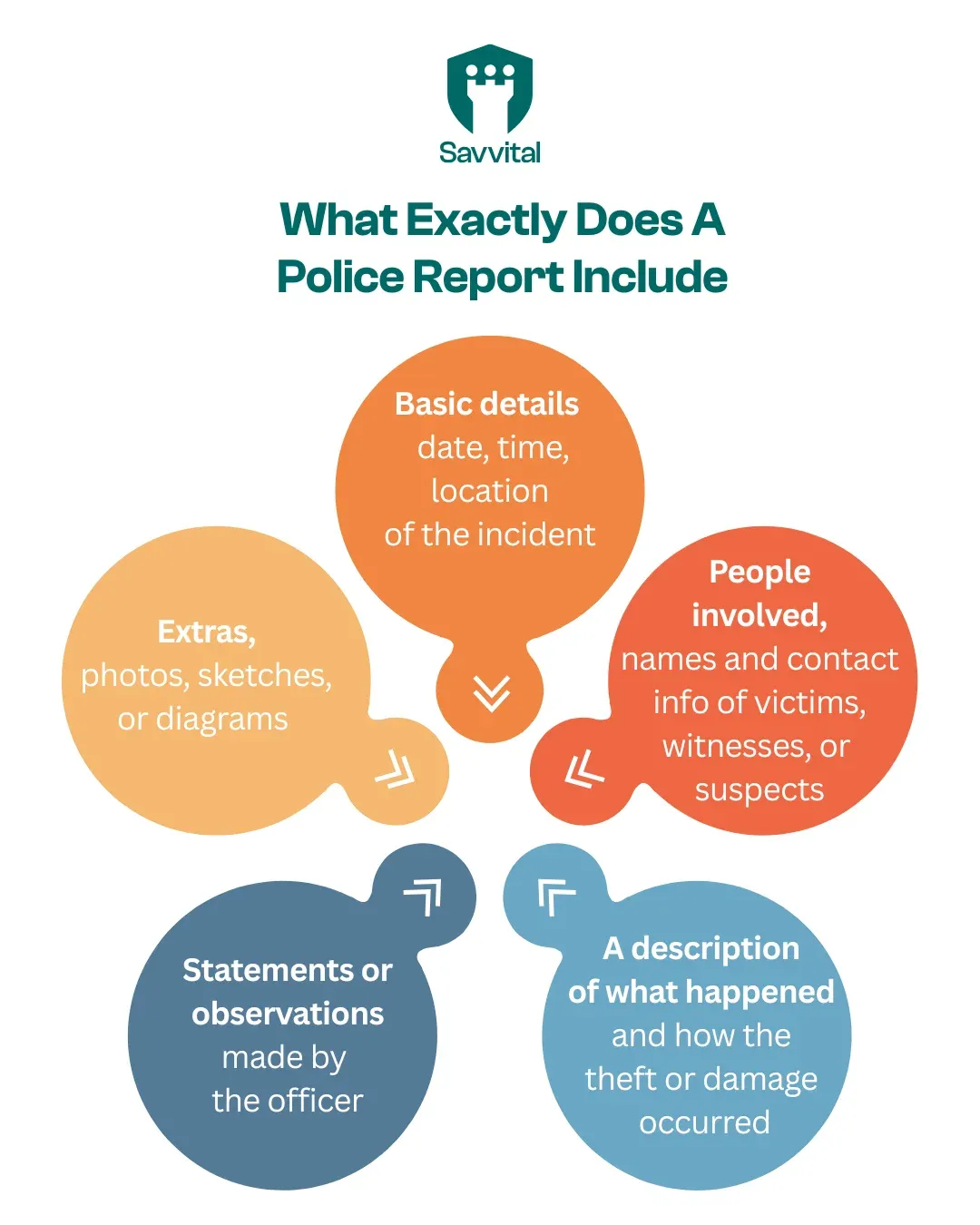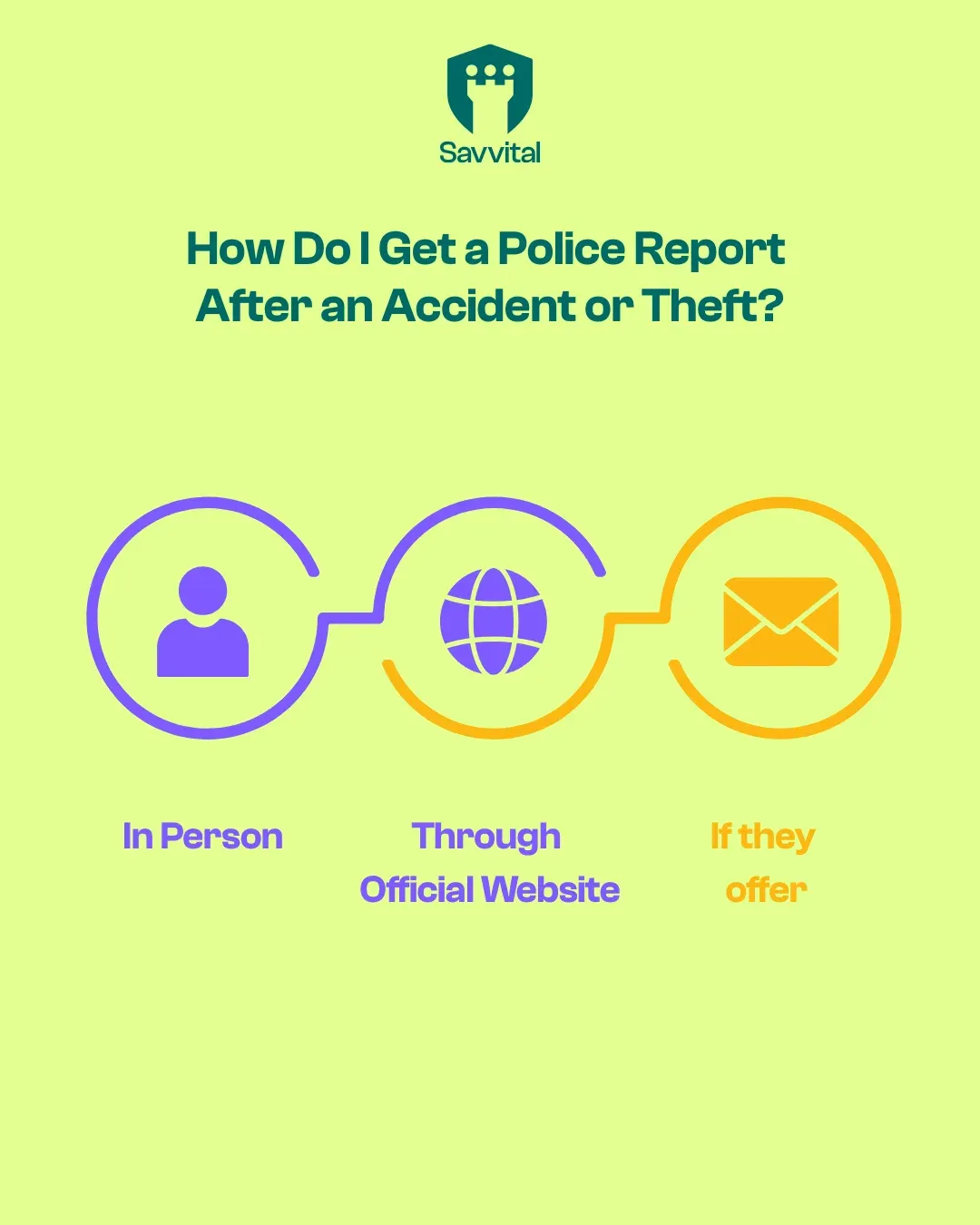
Do I Need A Police Report To File An Insurance Claim For Theft?
1. Theft Happens. Now What?
Theft is stressful, frustrating, and leaves you feeling vulnerable but you're not alone. Whether it’s a stolen bike, a break-in, or something missing from your car, the first instinct is usually to turn to your insurance for help. Filing a claim can help you recover financially, but the process sometimes feels confusing. One of the biggest questions people ask right away is: “Do I need a police report to file an insurance claim?” Let’s break it down and make it simple.
2. The Role of a Police Report in Theft Claims
Let’s start with the basics: What is a police report? It’s an official document filed by a police officer that details an incident like a theft, break-in, or even an accident. It includes important info such as what happened, when and where it happened, and who was involved. Think of it as a formal, trusted version of your side of the story.
Now, why does this matter when you're filing an insurance claim?
A police report adds credibility. It proves to your insurance company that the theft really happened and gives them something concrete to refer to when reviewing your claim. Insurance companies deal with lots of cases, so they need evidence to make sure everything adds up. A report written by law enforcement gives your claim that extra layer of verification.
Let’s say someone breaks into your car and steals your laptop. If you just tell your insurer it’s gone, they might believe you but they’ll definitely want something more official. When you file a police report, it shows that you took the incident seriously and acted responsibly.
You should always contact the police and ask for a report if you’re involved in situations like:
- Car accidents
- Pedestrian accidents
- Hit-and-run incidents
- Physical assault
- Theft or burglary (from your car, home, or elsewhere)
- Property damage (like vandalism or broken windows)
These reports not only help your claim, but they can also support any investigation and improve your chances of recovering stolen items or catching the person responsible.
In short, a police report is more than paperwork. It’s a helpful, sometimes necessary, tool that strengthens your insurance claim and shows that you’re playing by the rules.
3. When a Police Report Is Really Needed and What’s in It
.webp)
While a police report is always helpful, there are certain situations where your insurance company will likely require it. These usually include:
- A stolen vehicle
- A home burglary
- Theft of high-value items like jewelry, laptops, or expensive gear
Now, what exactly does a police report include?

Here’s a quick breakdown of the kind of info you’ll find in one:
- Basic details like the date, time, and exact location of the incident
- People involved, including names and contact info of victims, witnesses, or suspects
- A description of what happened and how the theft or damage occurred
- Statements or observations made by the officer
- Extras, like photos, sketches, or diagrams (depending on the case)
This info helps insurance companies piece together the full picture. It supports your version of events and can speed up the approval process. Basically, the more details they have, the easier it is for them to say, “Yep, this checks out.”
4. How Do I Get a Police Report After an Accident or Theft?
Getting a copy of your police report is usually pretty simple. You just need to know where to look.

Start by reaching out to the law enforcement agency that responded to the incident. This is usually your local police department or highway patrol, depending on where it happened. They’ll let you know the best way to request the report, which might be:
- In person at the station
- Online through their official website
- By mail, if they offer that option
Make sure you have a few key details ready:
- The case number (if you were given one)
- The date, time, and location of the incident
- Your ID, since they’ll need to confirm you’re involved in the case
If you’re working with a lawyer, like after an accident or injury, they can often request the report for you as part of handling your case.
Once you get the report, take a few minutes to read through it and make sure everything looks accurate. If something seems off, you may be able to request a correction.
5. Do I Have to File a Police Report to File a Claim?
The short answer? Not always.
You can usually file an insurance claim without a police report but having one can make the whole process a lot smoother.
A police report is like an official record from a neutral third party. It shows what happened, when, and who was involved. This can help your insurance company figure out what’s what, especially if there’s a disagreement about the details.
If you don’t file a report, you’ll need to collect more information yourself. That means:
- Getting names, contact details, and insurance info from everyone involved
- Making sure the info you collect is real and accurate
This can get tricky. For example, someone without insurance might give you a fake insurance card. If there’s no police officer at the scene, it’s harder to catch that in the moment.
So, while it’s not required in every case, filing a police report is usually a smart move. It saves time, adds credibility to your claim, and helps protect you from possible surprises later.
Filing an insurance claim after theft can feel overwhelming, but having a police report makes the process smoother and more reliable. While it's not always required, it helps verify the details of the incident and supports your claim. Remember to file the report as soon as possible and provide accurate information to both the police and your insurer. If you're ever unsure, don’t hesitate to ask your insurance provider for guidance. Taking these steps ensures that your claim is processed efficiently, giving you peace of mind.
6. FAQs
Q: Can I file an online police report?
A: Some areas allow online filing. Check with your local law enforcement to see if this is an option.
Q: What should I include in the report?
A: Include details like the date, time, location, people involved, and a description of the incident.
Q: How can I prove my items were stolen?
A: A police report can help document stolen items and confirm their value, which is useful for your claim.
Q: What if the police can’t find the thief?
A: Even if the thief isn't caught, the police report can still be vital for processing your insurance claim.
Q: Will my premium go up after theft?
A: It depends on your insurer. Some may raise rates, while others may not, especially if you're not at fault.
Published on 3 Jul 2025
Author: Rafia Hassan